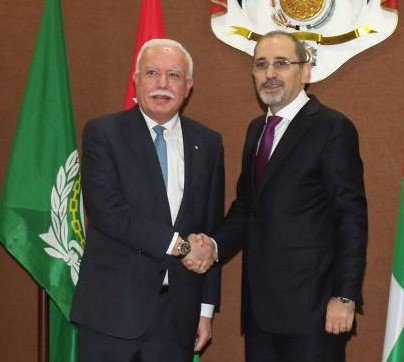Top diplomats discuss peace, aid, and stronger cooperation in Abu Dhabi
It wasn’t just a diplomatic visit. When UAE Foreign Minister Sheikh Abdullah bin Zayed met with his Jordanian counterpart Ayman Safadi in Abu Dhabi, the conversation ran deep. It wasn’t all smiles and handshakes either—it was loaded with urgency, solidarity, and shared concerns.
Both sides had plenty to talk about. With the Middle East on edge again, Gaza in turmoil, and regional diplomacy stretched thin, the two nations leaned into their long-standing bond to find common ground. And they made it clear—they’re not just allies, they’re brothers in a troubled neighborhood.
Centuries of Brotherhood, A Modern Political Bond
The relationship between the UAE and Jordan isn’t something that popped up recently. It’s grounded in history—deep, emotional, almost familial.
Sheikh Abdullah didn’t mince words. He called the ties “deep-rooted” and stressed that the two countries shared more than just political goals—they share vision, values, and yes, bloodlines.
Safadi, on his part, echoed that sentiment, highlighting how Jordan sees the UAE not just as a partner, but as a trusted, stable force in the region.
And what are they trying to build? Not just stronger trade or defense agreements. It’s bigger. They’re aiming for:
-
Economic cooperation across energy, infrastructure, and digital transformation
-
Education partnerships and youth-focused projects
-
Stronger cultural exchanges and tourism flows
One sentence summed it up: “We want our peoples to grow, not just our policies.”

Gaza Looms Large Over Every Conversation
This wasn’t just a feel-good meeting. The Gaza crisis loomed large over the talks.
The truce that had fallen apart? The hostages still unaccounted for? The growing humanitarian disaster? It all hung in the air like a heavy fog.
Both diplomats didn’t just condemn the violence—they pushed for action. Real, immediate, boots-on-the-ground kind of action. They agreed on four core goals:
-
Resuming the truce without delay
-
Securing the release of hostages
-
Boosting humanitarian aid
-
Stabilizing the region through coordinated diplomacy
There’s frustration too. Quiet, but it’s there. As one insider put it, “They’re tired of waiting for international actors to do what they could already be doing.”
One sentence to sum it up? “If we don’t move now, things will only get worse.”
Diplomacy Is One Thing. Regional Trust? That’s Another.
Diplomatic handshakes are common. Trust? That’s earned. And in a region riddled with skepticism, the UAE and Jordan have built a rare level of trust.
Over the past five years, both nations have quietly ramped up coordination on everything from border security to counter-terrorism and even cyber diplomacy. But there’s still a sense that more needs to be done.
Here’s a look at their growing engagement:
| Sector | UAE-Jordan Initiatives |
|---|---|
| Humanitarian Aid | Joint Gaza relief convoys, Red Crescent partnerships |
| Energy Cooperation | Shared solar investments and infrastructure deals |
| Youth Development | Student exchange programs and tech incubators |
| Security | Counter-extremism intel-sharing, joint drills |
| Diplomacy | Coordinated positions in Arab League and UN forums |
That table shows it’s not just talk. It’s real movement. But as one senior diplomat put it, “We need consistency, not just chemistry.”
Jordan’s Role as a Regional Mediator Gets a Boost
Jordan’s always played middleman in the region. Neutral, calm, measured—that’s the Safadi brand. And this visit to Abu Dhabi? It added weight to that role.
Safadi’s been on a regional tour lately, pushing for broader Arab consensus, especially on Palestine and Gaza. The UAE meeting felt like a strategic checkpoint—aligning visions before another storm hits.
Jordan’s biggest diplomatic strength has always been its reliability. It’s not the loudest voice in the room, but it’s often the one people listen to when the shouting stops.
For Sheikh Abdullah, having Jordan by the UAE’s side adds legitimacy and continuity to the region’s peace efforts. No surprises there.
One Emirati analyst put it like this: “When Amman and Abu Dhabi agree, people start paying attention.”
What’s Next? Real Cooperation or More Empty Promises?
Let’s be honest—meetings like these happen all the time in global diplomacy. What makes this one different? Two things: timing and tone.
The Middle East is under pressure. Iran is acting up again. The Gaza crisis is boiling. And the usual Western players are too distracted or divided to lead. That’s pushing regional allies to step up.
Still, skeptics aren’t convinced. They want to see more than statements. They want real outcomes. So the pressure’s on. For both sides.
One diplomat summed it up with a quiet warning: “If we can’t deliver now, when everything’s burning, then when will we?”
